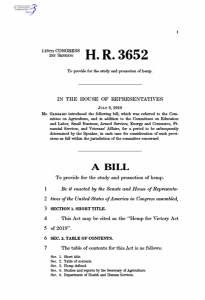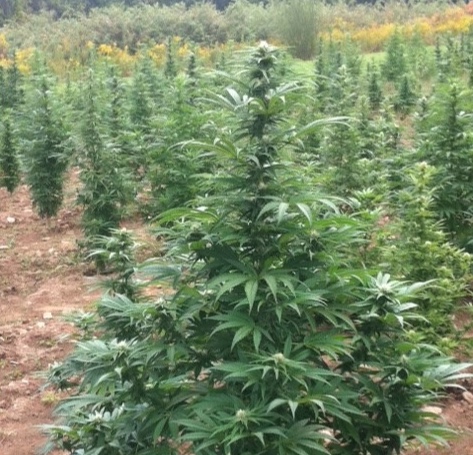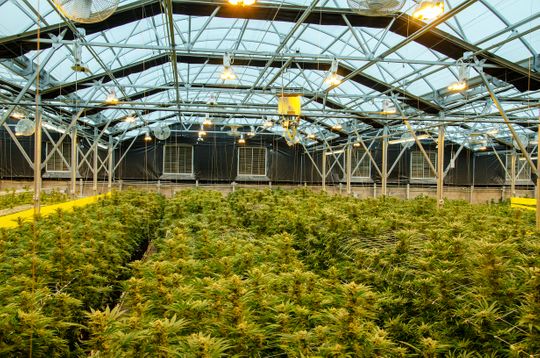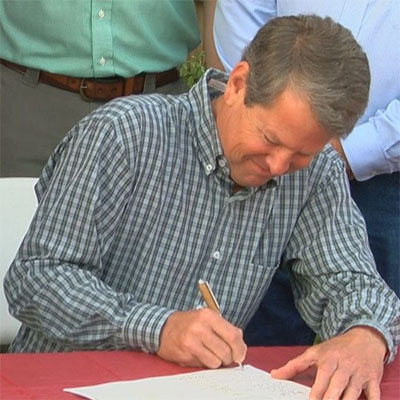June 14, 2019
The Honorable Stephen Alexander Vaden
General Counsel
Office of General Counsel
U.S. Department of Agriculture
1400 Independence Avenue SW
Washington, D.C. 20250
Dear Mr. Vaden:
We write concerning a provision enacted as part of the Agriculture Improvement Act of 2018 (P.L. 115-334) that makes any person convicted within the past ten years of a felony relating to a controlled substance under State or Federal law ineligible to produce hemp in accordance with a State, Tribal or Federal plan and Federal regulations. We urge the USDA to implement the hemp felony ban to apply only to individuals seeking a license or authorization to produce hemp in accordance with a state, tribal or USDA plan.
Although Congress specified that the hemp felony ban should apply to producers, there are many occupational roles that could be interpreted to be involved in hemp production. Should the provision be interpreted in an inappropriately broad manner, state agricultural authorities and the private sector would be required to conduct costly background checks, screen and track workers involved in hemp production operations such as cultivation, processing, packaging and transporting hemp products. Application of the hemp felony ban in this manner through USDA rulemaking would impose unnecessary hardship on states, the agriculture industry and individual farmers to comply with the rule.
We believe a fair reading of the Agriculture Improvement Act of 2018 and the accompanying conference report indicates that Congress intended for this provision to only apply to individuals seeking a license or authorization to produce hemp in accordance with a state, tribal or USDA plan.
The conference report accompanying the Agriculture Improvement Act of 2018 specifies
“negligent and other types of producer violations that require enforcement under a state or tribal plan. One such producer violation includes the felony ban regarding individuals that cannot “participate in state or tribal plans.” The conference report then states that the felony ban “shall not apply to producers” who were lawfully participating in a state hemp pilot program prior to enactment. The felony ban clearly applies to producers.
The Agriculture Improvement Act of 2018 further specifies requirements that must be fulfilled before a producer can participate in a State, Tribal or Federal plan including:
- Providing a legal description of land on which the producer produces hemp;
- Producing hemp containing less than 0.3 percent THC on a dry weight basis.
These requirements that a producer must meet to lawfully participate in a State, Tribal or Federal plan are consistent with the roles and responsibilities of an individual seeking a license or authorization from the government. The hemp felony ban therefore applies to individuals seeking to obtain and maintain a license or authorization from the government to produce hemp. The hemp felony ban should not apply to any other individuals engaged in lawful hemp production under a State, Tribal or Federal plan, including any individuals employed by a producer.
We therefore urge USDA to follow congressional intent and limit the application of the felony ban only to individuals seeking to obtain a license or authorization to produce hemp in accordance with the Agriculture Improvement Act of 2018.
To further discuss our views, please contact Aline DeLucia with the National Association of State Departments of Agriculture; or Scott Bennett with the American Farm Bureau Federation; or Eric Steenstra with Vote Hemp; or Grant Smith with the Drug Policy Alliance.
Thank you for considering our perspective,
American Farm Bureau Federation
Drug Policy Alliance
National Association of State Departments of Agriculture
Vote Hemp
 Rep. Gabbard (D-HI) introduced H.R. 3652, the Hemp For Victory Act which lays the foundation for the emerging hemp industry in a manner that incentivizes family farmers and small businesses, protects against corporate monopolies, and studies the benefits of hemp cultivation and hemp-based products while ensuring safe agricultural practices, and environmental and labor considerations.
Rep. Gabbard (D-HI) introduced H.R. 3652, the Hemp For Victory Act which lays the foundation for the emerging hemp industry in a manner that incentivizes family farmers and small businesses, protects against corporate monopolies, and studies the benefits of hemp cultivation and hemp-based products while ensuring safe agricultural practices, and environmental and labor considerations. 




